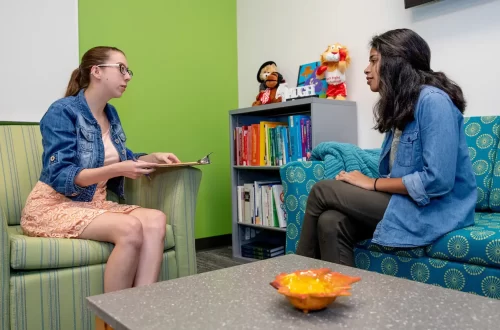Australia has long been a welcoming destination for “mature-age students” – individuals who decide to pursue higher education later in life, typically aged 21 or older when they commence their studies. This demographic is a significant and valued part of the Australian university landscape, bringing a wealth of life experience, diverse perspectives, and a strong commitment to their studies.
Universities across Australia recognize the unique needs and valuable contributions of mature-age students and have adapted their entry pathways, support services, and course delivery to accommodate them.
What Defines a Mature-Age Student in Australia?
While there’s no single, rigid definition across all institutions, a mature-age student in Australia is generally considered to be someone aged 21 or older when they begin their undergraduate university course, especially if they haven’t recently completed Year 12 (high school) or other formal tertiary qualifications.
Why Do Mature-Age Students Choose University in Australia?
There are numerous reasons why individuals opt for university study later in life:
- Career Change or Advancement: Many seek to upskill, gain new qualifications for a career pivot, or secure promotions in their current field.
- Personal Enrichment: A desire to pursue a long-held passion, intellectual curiosity, or personal growth.
- Filling Knowledge Gaps: To formalize skills gained through work experience or to gain a deeper theoretical understanding of their profession.
- Responding to Industry Demands: Adapting to evolving job markets that require new qualifications.
- Role Model for Family: Inspiring children or younger family members to pursue education.
How to Gain Entry as a Mature-Age Student
Australian universities offer flexible entry pathways beyond the traditional ATAR (Australian Tertiary Admission Rank) for recent school leavers:
- Recognition of Prior Learning (RPL) / Credit for Work Experience: Many universities assess applicants based on their work experience, informal learning, and vocational training (VET qualifications like Diplomas or Advanced Diplomas). If your experience is relevant to your chosen course, you may gain credit or even direct entry.
- Special Tertiary Admissions Test (STAT): This is a general aptitude test designed to assess a range of skills considered important for tertiary study. It’s a common pathway for mature-age applicants who don’t have recent academic qualifications.
- Pathway Programs / Bridging Courses: Universities and TAFE (Technical and Further Education) colleges offer preparatory courses designed to refresh academic skills, build confidence, and meet university entry requirements. Examples include university preparation programs or foundation studies.
- Previous Tertiary Study: If you’ve completed some university or TAFE study in the past, your academic record from those courses can be used for admission.
- Direct Application: Some universities allow direct applications from mature-age students, assessing their overall life experience, resume, and a personal statement outlining their motivation and suitability for the course.
It’s crucial for prospective mature-age students to check the specific entry requirements for their chosen course and university, as these can vary significantly. University admissions offices often have dedicated advisors to guide mature-age applicants.
Support Services and Learning Environment
Australian universities are generally well-equipped to support mature-age students:
- Flexible Study Options: Many programs are available part-time, externally (distance learning), or fully online, allowing students to balance study with work, family, and other commitments. Some universities, like Victoria University, even offer unique “Block Model” learning where students focus on one subject at a time.
- Academic Support: Access to academic skills workshops (essay writing, research, critical thinking), peer mentoring programs, and learning support centers.
- Counselling and Well-being Services: Support for managing stress, personal challenges, and maintaining mental well-being while studying.
- Career Services: Guidance on career planning, resume writing, and job search strategies, often tailored to help mature-age graduates leverage their new qualifications alongside their existing experience.
- Mature-Age Student Networks: Some universities have dedicated clubs, societies, or informal networks for mature-age students, fostering a sense of community and peer support. Research indicates that peer support is particularly crucial for the success of mature-age learners.
Financial Assistance
For eligible domestic mature-age students (Australian citizens, permanent residents, and some New Zealand citizens), government financial assistance is available:
- HECS-HELP/FEE-HELP: Government loan schemes to cover tuition fees, which are repaid once income reaches a certain threshold.
- Austudy/Youth Allowance: Income support payments for eligible full-time students (Austudy for those 25 and over, Youth Allowance for those under 25).
- Scholarships: Universities and external organizations offer various scholarships, some specifically for mature-age students or those with demonstrated financial need.
Returning to university as a mature-age student in Australia is a journey of growth and opportunity. With supportive institutions and diverse pathways, it’s never too late to pursue your educational aspirations and reshape your career.





